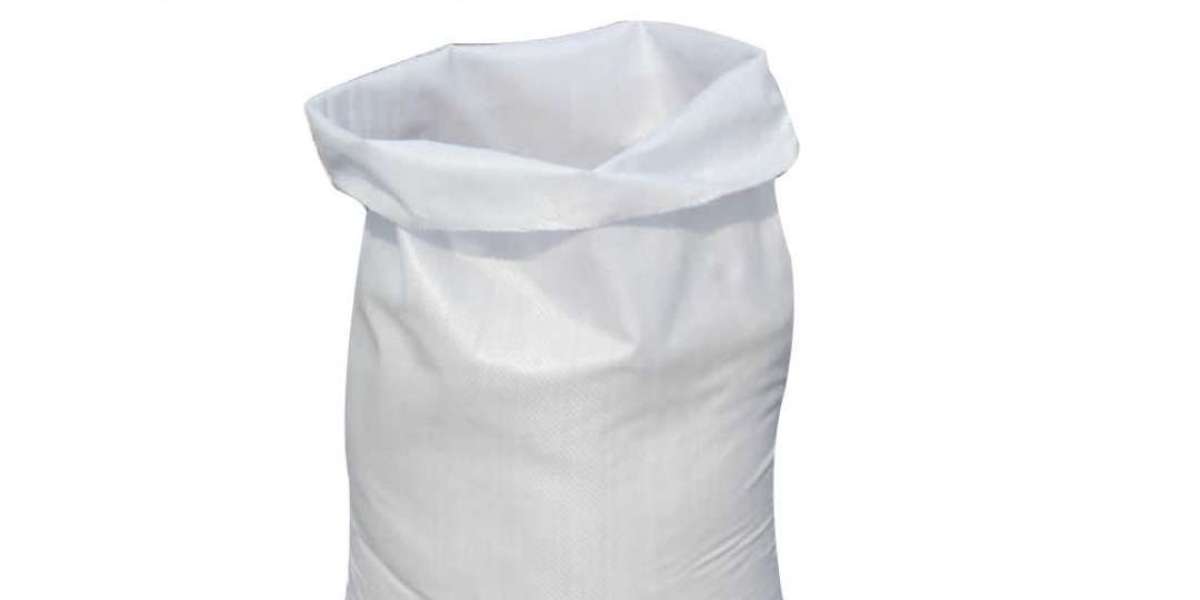Introduction to PP Woven Bags
PP woven bags, made from polypropylene, have gained widespread popularity in various industries due to their durability, versatility, and cost-effectiveness. These bags are created through a process known as weaving, where polypropylene strands are interlaced to form a strong fabric. This technique increases the bags' resistance to tearing and puncturing while maintaining a lightweight profile, making them suitable for numerous applications ranging from agricultural to industrial uses. The rising demand for eco-friendly packaging solutions has further enhanced the prominence of Pulkit Plastic Products, as they offer a sustainable alternative to traditional plastic bags.
Key Characteristics of Polypropylene Woven Bags
Polypropylene woven bags exhibit a range of characteristics that contribute to their appeal among consumers and businesses alike. One of the most notable features is their exceptional strength-to-weight ratio. The weaving process gives these bags high tensile strength, enabling them to carry heavy loads without compromising their integrity. This makes them ideal for packaging bulk items such as grains, fertilizers, and construction materials.
Additionally, PP woven bags are moisture-resistant, which is particularly beneficial for agricultural applications where products must be safeguarded against humidity and rain. Unlike other packaging materials, these bags do not absorb moisture, thus protecting their contents from spoilage or degradation. Furthermore, they are available in various sizes, colors, and designs, allowing businesses to customize their bags according to brand identity and marketing needs.
The recyclability of polypropylene woven bags also adds to their environmental appeal. They can be repurposed after use, minimizing waste and promoting sustainability. As global consumers increasingly prefer eco-friendly products, the demand for woven polypropylene bags has surged, prompting polypropylene bags manufacturers to develop innovative designs and production techniques that prioritize environmental responsibility.
Applications of PP Woven Bags
The applications of Polypropylene woven bags are extensive, making them a preferred choice across multiple sectors. In the agricultural sector, for instance, these bags are frequently used for packaging grains, seeds, and fertilizers. Their strength and resistance to moisture ensure that agricultural products remain protected during transportation and storage, thereby extending their shelf life and maintaining quality.
In the construction industry, PP woven bags are employed to carry cement, sand, and other bulk materials. Their ability to withstand rough handling and heavy loads makes them indispensable for construction operations. Furthermore, these bags can be used for packaging landscaping materials like mulch and soil, providing a convenient solution for both sellers and consumers.
Retailers also utilize PP woven bags as shopping bags, appreciating their durability and reusability. Unlike single-use plastic bags, these woven bags can be used multiple times, aligning with the increasing demand for sustainable product options. Additionally, manufacturers have begun personalizing PP woven bags with prints and logos, allowing retailers to enhance brand visibility and engage consumers.
Moreover, the textile industry has found applications for PP woven bags in the production of various consumer goods. They are used for creating reusable shopping bags, backpacks, and even furniture items, making them a versatile component in both industrial and retail environments.
Choosing a Polypropylene Bags Manufacturer
When selecting a polypropylene bags manufacturer, several factors must be considered to ensure a successful partnership. Quality is paramount. It’s essential to research and verify that the manufacturer adheres to industry standards concerning materials, production techniques, and environmental practices. Quality control measures should be in place to guarantee the bags meet specifications for durability and performance.
Production capacity is another vital factor. Depending on your business needs, you may require a manufacturer capable of efficiently producing large quantities of bags within specified timelines. Understanding their turnaround times and workflow processes can help avoid supply chain disruptions and ensure that your projects stay on schedule.
Customization options offered by the manufacturer should also be a key consideration. Many businesses look to differentiate their brand using tailored designs, colors, and sizes. A reliable manufacturer should provide a range of customization options, enabling you to create bags that align with your marketing goals and customer preferences.
Lastly, consider the manufacturer's commitment to sustainability. Collaborating with suppliers who prioritize eco-friendly practices can enhance your brand's reputation while aligning with consumer expectations regarding environmental responsibility. Asking manufacturers about their recycling efforts, material sourcing, and waste management practices will provide insight into their overall sustainability strategy.
Innovations in PP Woven Bag Production
The polypropylene woven bag production landscape is continuously evolving as manufacturers embrace innovative technologies and sustainable practices. Advanced weaving machines capable of producing high-quality, intricate designs have emerged, enhancing the aesthetic appeal of PP woven bags while maintaining their functional characteristics. Digital printing technology allows brands to create customized designs with vivid colors, promoting greater brand visibility.
Additionally, manufacturers are increasingly focused on sustainability by incorporating recycled materials into their production processes. This practice not only reduces environmental impact but also caters to the growing consumer demand for eco-friendly products. Research into biodegradable additives for polypropylene is underway, aiming to create woven bags that can break down more naturally over time.
Further innovations include enhanced bag features such as UV stabilization, which extends the life of bags used for outdoor applications by protecting them from sun damage. Anti-slip technology is also being integrated into some PP woven bags, improving their usability when stacked or loaded onto vehicles.
Particularly in the transportation sector, smart technology has begun influencing bag development. Some manufacturers have introduced RFID tags and smart application integration, allowing for better tracking and inventory management for products packaged in polypropylene woven bags. These advancements not only improve efficiency but also provide businesses with valuable data regarding their supply chain.
Environmental Considerations and Sustainability
As environmental concerns become increasingly vital in today’s society, the polypropylene woven bag industry is taking significant steps toward sustainability. Conventional Polypropylene bags manufacturer, often perceived as harmful to the environment, have prompted a shift toward more sustainable options. PP woven bags, constructed from recyclable material and designed for multiple uses, provide a viable solution.
Manufacturers are actively engaging in sustainable practices such as utilizing recycled polypropylene and minimizing waste within the production process. Efforts to reduce energy consumption and implement more efficient production methods are also being prioritized. This commitment not only supports the environment but can also enhance a company’s reputation in the marketplace.
Moreover, governments around the world are enacting regulations aimed at reducing plastic waste and promoting eco-friendly alternatives. Such policies encourage businesses to adopt polypropylene woven bags as part of their packaging and distribution strategy, ultimately leading to a decrease in single-use plastics.
Companies are also promoting educational initiatives to raise awareness about the importance of recycling and responsible waste management. By providing insights into the reusability of PP woven bags and encouraging customers to recycle them after use, manufacturers are contributing to a more sustainable future.
Market Trends and Future Outlook
The market for polypropylene woven bags is witnessing robust growth, fueled by heightened demand across multiple sectors. As consumer awareness of environmental issues increases, businesses are more frequently turning to sustainable packaging solutions that align with their values. This shift has prompted manufacturers to invest in research and development, continually improving their products and practices.
Additionally, the rise of e-commerce has broadened the market for PP woven bags. Online retailers require durable packaging that effectively protects products during transit, making woven bags an appealing option to ensure the safe arrival of goods at customers' doorsteps. This trend is expected to continue, further driving demand in the coming years.
The agricultural sector is poised to maintain a steady demand for polypropylene woven bags as the need for robust packaging solutions grows with a focus on food security and crop protection. Additionally, as industries adjust to new regulations surrounding plastic use and waste, the demand for reusable and recyclable packaging will likely see substantial growth.
In conclusion, the future of the PP woven bag market looks promising as industries evolve toward environmentally responsible practices and consumers prioritize sustainability. With ongoing innovations in materials, design, and production techniques, polypropylene woven bags are well-positioned to play a significant role in shaping packaging solutions for a variety of sectors.
Conclusion: Embracing the Future of PP Woven Bags
The PP woven bags represent a blend of strength, versatility, and sustainability, making them an invaluable resource across various industries. From their key characteristics and diverse applications to the innovations shaping their production, these bags provide practical solutions that meet the evolving needs of consumers and businesses alike.
As businesses increasingly seek out eco-friendly alternatives, the polypropylene woven bag industry needs to focus on maintaining quality, implementing sustainable practices, and embracing innovative technologies. Collaborations between manufacturers and companies that prioritize ethical production and environmental responsibility will pave the way for a more sustainable and prosperous future for PP woven bags.
By recognizing their potential impact on both the economy and the environment, stakeholders across industries can capitalize on the benefits of polypropylene woven bags, fostering a culture of sustainability while meeting the needs of modern consumers.
Frequently Asked Questions
1. What are PP woven bags made of?
PP woven bags are made of polypropylene, a thermoplastic polymer. The production process involves weaving polypropylene strands together to create a strong, durable fabric suitable for various applications.
2. What are the primary benefits of using polypropylene woven bags?
The primary benefits of using polypropylene woven bags include their strength and durability, moisture resistance, lightweight nature, recyclability, and versatility in application across industries such as agriculture, construction, and retail.
3. How do I choose a reliable polypropylene bags manufacturer?
When choosing a polypropylene bags manufacturer, consider factors such as product quality, production capacity, customization options, adherence to environmental standards, and customer service. Researching and reviewing feedback from other clients can also help in making an informed decision.
4. Can polypropylene woven bags be recycled?
Yes, polypropylene woven bags can be recycled. Many manufacturers encourage recycling by providing information on how to properly dispose of or repurpose used bags, supporting efforts to reduce plastic waste and promote sustainability.







